Tax Filing and Payment Deadlines
Meeting your tax filing and payment duties
For any company or individual, meeting their deadlines when it comes to filing and payment of taxes to the government is essential. It is the responsibility of every business to meet their deadlines without fail, as missing these will trigger the risk of getting a penalty. Here are some Filing and Payment deadlines to help you keep up with your duties.
Self-Assessment
Self-Assessment is a system HM Revenue and Customs (HMRC) uses to collect Income Tax. Tax is usually deducted automatically from wages, pensions and savings. People and businesses with other income must report it in a tax return. If you need to send one, you fill it in after the end of the tax year (5 April) it applies to.
Deadlines:
Registering and Filing Deadlines:
HMRC must receive your tax return and any money you owe by these deadlines following the end of the tax year:
- Register for Self-Assessment: 5 October
- Paper Tax returns: Midnight 31 October
- Online Tax returns: Midnight 31 January
Payment Deadlines:
The deadlines for paying your tax bill are:
- 31 January – for any tax you owe for the previous tax year (known as a balancing payment) and your first payment on account
- 31 July for your second payment on account
If you prefer to pay regularly throughout the year, you can use a budget payment plan.
Penalties:
You’ll get a penalty if you need to send a tax return and you miss the deadline for submitting it or paying your bill. You’ll get a penalty of £100 if your tax return is up to 3 months late. You’ll have to pay more if it’s later, or if you pay your tax bill late. You’ll also be charged interest on late payments.
PAYE
Any employer would normally operate PAYE as part of their payroll. PAYE is HMRC’s system to collect Income Tax and National Insurance from employment. You do not need to register for PAYE if none of your employees are paid £118 or more a week, get expenses and benefits, have another job or get a pension. However, you must keep payroll records.
Filing:
When paying your employees through payroll you also need to make deductions for PAYE. The PAYE deductions will be filed to HMRC through RTI (Real Time Information) submission every month on the day of paying your employees.
Payments and deductions:
You’ll be able to view what you owe HMRC, based on your reports. You then have to pay them, usually every month.
You must pay your PAYE bill to HMRC by:
- 22nd of the next tax month if you pay monthly
- The 22nd after the end of the quarter if you pay quarterly – for e.g. by 22nd July for 6th April- 5th July quarter.
- If you pay by cheque through the post deadline is 19th of the month.
CIS
Under the Construction Industry Scheme (CIS), contractors deduct money from a subcontractor’s payments and pass it to HMRC.
Filing:
You must tell HMRC each month about payments you’ve made to subcontractors through your monthly return. You do not have to file a return for the months when you made no payments to subcontractors, but you must tell HMRC that no return is due.
Deadlines:
Send your monthly returns to HMRC by the 19th of every month following the last tax month. For example, if you’re making a return for the tax month of 6 May to 5 June, it must reach HMRC by 19th June.
VAT
You must register your business for VAT with HMRC if its VAT taxable turnover is more than £85,000* (*VAT registration threshold in 2020).
You usually submit a VAT Return to HMRC every 3 months. This period of time is known as your ‘accounting period.’
The VAT Return records things for the accounting period like:
- your total sales and purchases
- the amount of VAT you owe
- the amount of VAT you can reclaim
- what your VAT refund from HMRC is
You must submit a VAT Return even if you have no VAT to pay or reclaim.
Deadlines:
The deadline for submitting the return online and paying HMRC are usually the same – 1 calendar month and 7 days after the end of an accounting period. You need to allow time for the payment to reach HMRC’s account.
Pay your VAT bill:
You must pay VAT to HMRC electronically, for example through direct debit or internet banking. Most businesses are not allowed to pay by cheque.
Corporation Tax
Corporation tax or company tax, is a direct tax imposed by a jurisdiction on the income or capital of corporations or analogous legal entities, foreign corporations who have a permanent establishment in the country, or corporations deemed to be resident for tax purposes in the country.
Rate:
Corporation Tax main rate is 19% from the year starting on 1 April 2017. To check the current corporation tax rate click here.
Deadlines:
The deadline for your tax return is 12 months after the end of the accounting period it covers. You’ll have to pay a penalty if you miss the deadline.
There’s a separate deadline to pay your Corporation Tax bill. It’s usually 9 months and 1 day after the end of the accounting period.
Ways to pay:
Make sure you pay HMRC by the deadline applicable. You’ll be charged interest and may have to pay a penalty if your payment is late.
The time you need to allow depends on how you pay. You can no longer pay at the Post Office.
Same or next day:
- online or telephone banking (Faster Payments)
- CHAPS
- by debit or corporate credit card online
- at your bank or building society
You need a paying-in slip from HMRC to pay at a bank or building society.
3 working days:
- Bacs
- Direct Debit (if you’ve set one up with HMRC before)
- by cheque through the post
5 working days:
- Direct Debit (if you have not set one up with HMRC before)
If the deadline falls on a weekend or bank holiday, make sure your payment reaches HMRC on the last working day before (unless you’re paying by Faster Payments or by debit or credit card).
You can find more information on how to pay HMRC here: https://www.gov.uk/topic/dealing-with-hmrc/paying-hmrc




